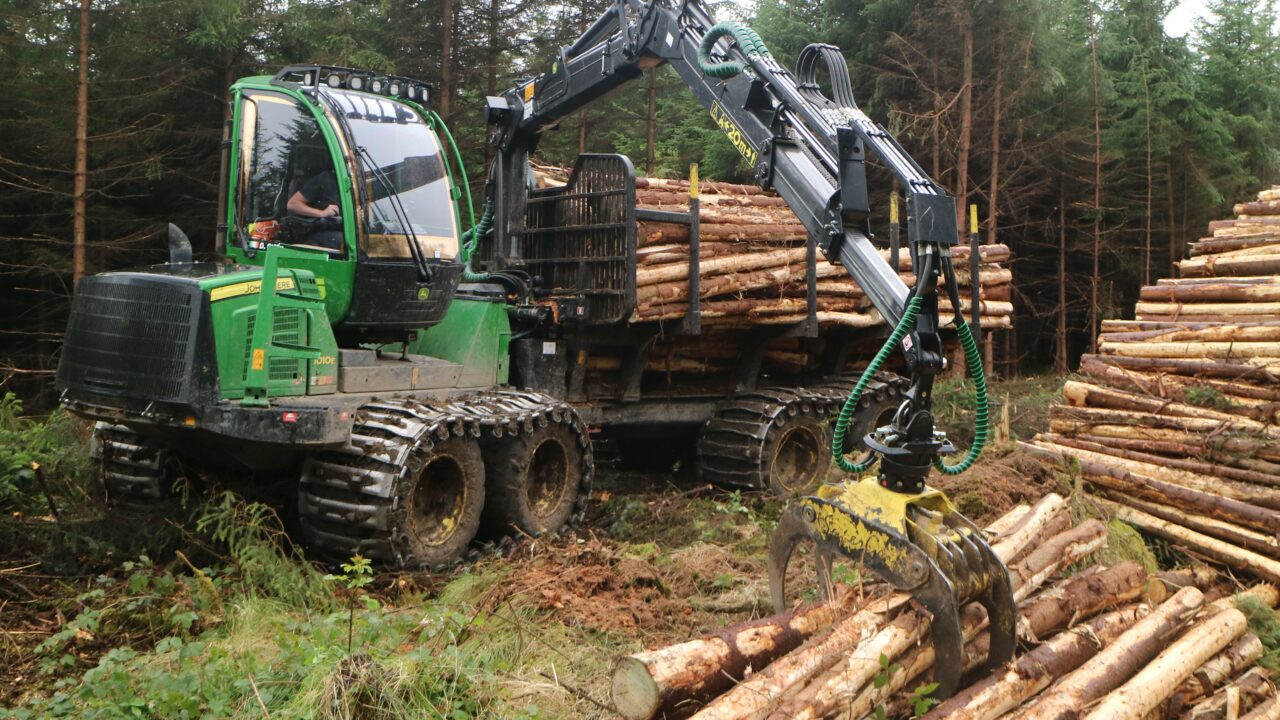A number of moves can be made by the Department of Agriculture, Food and the Marine which will go some way to alleviating the current logjam which is crippling the forestry sector at present, a prominent sector stakeholder has said.
Marina Conway, CEO of the Western Forestry Co-op – which provides backup services to farmers going into forestry in western counties – spoke to AgriLand about the issue, outlining how, in her view, the Department of Agriculture can improve the situation:
“They need to review the 15km zone for every site. For every site and area – could that not be looked at?”
Continuing, Conway said: “People would say that they have to resource it; I would like to see more training for ecological staff who may have limited understanding of forest operations. I know with Covid-19 that it is difficult but hopefully in the future it would be a good step forward.
““I would like There to be better communications between the sector and the department. I would much prefer if there was – we don’t want to always be hassling them about licences not coming through.
“I would welcome a better forum of working together and trying to solve some of these issues together it would be a benefit.
It’s very frustrating for the people involved; the sector is tired. We’ve lost a lot of capacity already in the forest sector workforce, the sector has gone from doing 6,500ha down to 2,500ha, and a lot of people have gone as well, and I would worry about getting that capacity back.
Explaining this point, Conway said a lot of subcontractors have gone to construction or other areas because they couldn’t rely on enough work in forestry in recent times.
Asked whether timber is still being imported into the country from Scotland and other countries to keep the industry going, she said:
“As far as I know, that is still ongoing. That to me is very sad and worrying – because we’re importing timber from spruce bark beetle infested areas and our main timber species in this country is spruce.
“And I know that the Department are checking all log imports, but with the best will in the world it’s a high, high risk. It could damage the whole industry.
But then, these sawmills are fighting for their survival – their other option was to shut down. The sad story is we have all the timber standing in this country but we can’t get licences to cut it. And we need wood – people need in their homes, farms and businesses.
Asked as to whether the new Forestry Bill introduced last October has improved things, Conway said: “Yes it has made a difference; there are still some appeals coming through but that’s fine. People will have issues [and appeal] and that’s what it was set up to do, if you have concerns about felling or planting happening in an area that you get to voice those concerns and have an opportunity to discuss them.
“That’s what the system was set up to do; to have that hearing and have that discussion. But what we were having were serial appeals who were appealing everything, the system allowed them to and it could be said there was no protection in that for the forest owner who wanted to plant or fell their trees..
But the amendment has worked. FII [Forest Industries Ireland] have called for regulatory reform – along with other stakeholders in the industry – we need regulatory reform, this needs to be reviewed.
“In the meantime they need more resources, we need a planning grant for forest owners, better engagement. The regulatory reform could also look at the 15km likely zone of impact, it all needs to be looked at to find a way so licenses can issue, people can plant trees and the backlog reduces,” Conway concluded.
